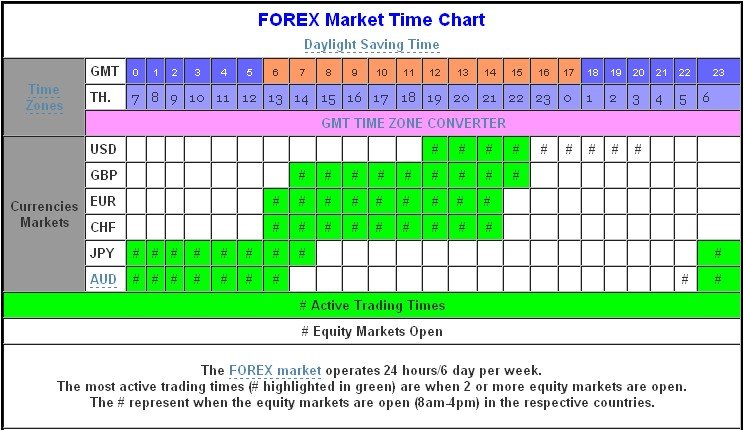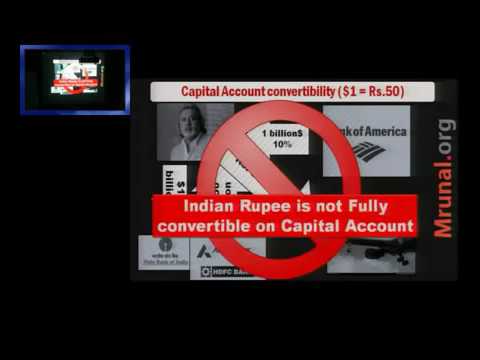Contents:


ECB funds may also be remitted to India for credit to the borrowers’ Rupee accounts with AD Category - I banks in India, pending utilization for permissible end-uses. Utilization of ECB proceeds is permitted for first stage acquisition of shares in the disinvestment process and also in the mandatory second stage offer to the public under the Government’s disinvestment programme of PSU shares. The maximum amount of ECB which can be raised by a corporate other than those in the hotel, hospital and software sectors is USD 500 million or its equivalent during a financial year.
- Usually, the Indian company issues these convertible bonds abroad to raise money in foreign currency.
- A foreign currency convertible bond is a type of bond issued in a foreign currency by a company that gives the holder the option to convert the bond into shares of the issuing company at a predetermined conversion price.
- In case of redemption, cash outflow is heavy in one financial year, unlike traditional debt which has regular repayment.
- If it is issued with a call option, the issuer can redeem the bond before the maturity date by paying off the principal amount to the investors.
- Deposits or Certificate of Deposit or other products offered by banks rated not less than AA(-) by Standard and Poor/Fitch IBCA or Aa3 by Moody’s.
FCCB gives the investor much of the upside of investment in equity, and the debt portion protects the downside. FCCB can be raised within a month while pure debt takes a longer period to raise. FCCB saves risks of immediate equity dilution as in the case of public shares. FCCB generally has a low rate of interest as compared to pure debt instruments. These bonds assume great importance for multinational corporations and in the current business scenario of globalization, where companies are constantly dealing in foreign currencies.
A foreign currency convertible bond is a convertible bond that is issued in foreign currency only, which means the principal repayment i.e., redemption amount and the periodic interest/coupon payments will be made in the very same foreign currency. An interesting fact about FCCB is that they are listed and traded in the foreign stock exchanges and are issued only in foreign currency with a fixed rate of interest. The interest payment is called coupons and the loan amount is called the principal. The FCCBs are issued in a foreign currency and which has a fixed interest rate that is lower than the rate of any other debt instrument which is non-convertible. So, comparatively, FCCB would be a considerable choice for issuing companies as the rates are lower.
The principal and the interest of which is payable in foreign currency. External Commercial Borrowings are commercial loans raised by eligible resident entities from recognized non-resident entities. FCCBs are typically traded on international stock exchanges, so they can be purchased by any investor who has access to these exchanges. In addition, companies that are considering issuing FCCBs may be required to obtain the approval of their board of directors, shareholders, and any relevant regulatory authorities before proceeding with the issuance. The process of issuing FCCBs can be complex and may involve a number of legal, financial, and regulatory considerations, so it is important for companies to carefully assess their eligibility and seek the guidance of experienced professionals before proceeding.
What is FCCB
The issuing fccb meaning mean an Indian company whose equity shares shall be offered in exchange of FCCB. The conversion price is set at a premium over the current stock price, or is set by a formula based on the price at the time of redemption. They have an inherent advantage that it does not result in dilution of shareholding at the offered company level. The issuer is able to convert the bond into stock at a pre-determined conversion rate at which the issuer is granted a certain number of shares. Principal and coupon payments but also offer the option of converting their bonds into stocks. Voting rights on shares issued under the Scheme shall be as per the provisions of Companies Act, 2013 and in a manner in which restrictions on voting rights imposed on ADR/GDR issues shall be consistent with the Company Law provisions.
FEMA 20/RB-2000 dated May 3, 2000, respectively, as amended from time to time. Exchange of foreign currency exchangeable bonds into shares shall not give rise to any capital gains liable to income-tax in India. An advantage for bond issuing companies is a lower coupon rate with the FCCBs.
FCCB Full Form in Marathi
Banks and financial institutions which had participated in the textile or steel sector restructuring package as approved by the Government are also permitted to the extent of their investment in the package and assessment by Reserve Bank based on prudential norms. Any ECB availed for this purpose so far will be deducted from their entitlement. Issuance of guarantee, standby letter of credit, letter of undertaking or letter of comfort by banks, Financial Institutions and Non-Banking Financial Companies from India relating to ECB is not permitted. In case of doubt as regards eligibility to access the Automatic Route, applicants may take recourse to the Approval Route. The issuing company shall be part of the promotor group of the offered company.
The funds that the company collects through the FCCB issue shall be usable as per External Commercial Borrowing guidelines. However, the term real estate excludes development of integrated township as defined by Ministry of Commerce and Industry, DIPP, SIA , Press Note 3 dated January 4, 2002. Cases falling outside the purview of the automatic route limits and maturity period indicated at paragraph I A . Corporates which have violated the extant ECB policy and are under investigation by Reserve Bank and / or Directorate of Enforcement, are allowed to avail ECB only under the Approval route. Borrowers may enter into loan agreement with recognised lender for raising ECB under Automatic Route complying with the ECB guidelines without prior approval of the Reserve Bank.
Special Considerations with Foreign Currency Convertible Bonds
Furthermore, the proposal for restructuring FCCB without involving any change in conversion price requires special approval from RBI. This policy will be reviewed periodically and appropriately depending on the macroeconomic conditions and other relevant factors. These bonds have lower interest rates than regular bonds because of the inherent option available to investors for conversion into equities. AD banks are permitted to approve trade credits for imports into India up to USD 20 million per import transaction for imports permissible under the current Foreign Trade Policy of the DGFT with a maturity period up to one year from the date of shipment. For import of capital goods as classified by DGFT, AD banks may approve trade credits up to USD 20 million per import transaction with a maturity period of more than one year and less than three years from the date of shipment.
Foreign currency convertible bonds are typically issued by multinational companies operating in a global space and looking to raise capital in foreign currencies. FCCB investors are usually hedge fund arbitrators and foreign nationals. These bonds can be issued along with a call option or put options . If converted, the company is able to reduce its debt as a result of foreign currency convertible bonds and thus gains additional, much-needed equity capital.
The average of the weekly high and low of the closing prices of the related shares quoted on a stock exchange during the two weeks preceding the relevant date. The ADR / GDR proceeds can be utilized for first stage acquisition of shares in the disinvestment process of Public Sector Undertakings / Enterprises and also in the mandatory second stage offer to the public in view of their strategic importance. The conversion, which should be with the lender’s consent and without any additional cost, will not result in a breach of the applicable sector cap on the foreign equity holding. In the quiver of Indian promoters to raise money overseas to fund their new projects and acquisitions, both Indian and global, by leveraging a part of their shareholding in listed group entities.
FCCBs may offer investors a higher yield than traditional debt securities, as the option to convert into equity represents a potential upside. FCCBs allow companies to raise capital in a foreign currency, which can be beneficial if the company anticipates future revenue streams in that currency. Since FCCBs are equity-linked debt securities that gives the holder the right to convert the bond into equity or depository receipt after some time. The proceeds of FCEB may be invested by the issuing company overseas by way of direct investment including in Joint Ventures or Wholly Owned Subsidiaries abroad, subject to the existing guidelines on overseas investment in Joint Ventures / Wholly Owned Subsidiaries.
Such ‘no objection’ should not be construed as a permission to acquire immovable asset in India, by the overseas lender / security trustee. The period of such charge on immovable assets has to be co-terminus with the maturity of the underlying ECB. ‘No objection’ shall be granted only to a resident ECB borrower. Premature buyback of FCCBs , subject to compliance with the terms and conditions detailed in Para A ibid. Units in Special Economic Zones are allowed to raise ECB for their own requirement. However, they cannot transfer or on-lend ECB funds to sister concerns or any unit in the Domestic Tariff Area.
FCCBs can be a useful financial instrument for companies looking to raise capital, but they also carry certain risks, such as the risk of default and the risk of currency fluctuation. As with any financial investment, it is important to carefully consider the potential risks and rewards before deciding whether FCCBs are a suitable investment option. However, it's important to note that FCCBs also carry some risks, including the risk of default, the risk of currency exchange rate fluctuations, and the risk of the issuer's stock declining in value.
A senior convertible note is a debt security that contains an option making the note convertible into a predefined amount of the issuer's shares. These kinds of bonds are often listed by large, multinational companies with offices around the world, seeking to raise money in foreign currencies. ECB is borrowings and when FCCB is converted into shares, it changes the form - from Debt into Equity- and it is no more ECB.
Community band dedicates performances to Oxford and Juneteenth - Spartan Newsroom
Community band dedicates performances to Oxford and Juneteenth.
Posted: Sun, 20 Mar 2022 07:00:00 GMT [source]
No roll-over/extension will be permitted beyond the permissible period. The designated AD bank is also required to ensure that raising of ECB is in compliance with ECB guidelines at the time of certification. The designated AD bank has general permission to make remittances of instalments of principal, interest and other charges in conformity with ECB guidelines issued by Government / Reserve Bank from time to time. The all-in-cost ceilings for ECB are indicated from time to time. The all –in- cost ceilings have been dispensed with until December 31,2009. Accordingly, eligible borrowers, proposing to avail ECB beyond the permissible all in cost ceiling specified at para 1 may approach RBI under approval route .This relaxation in all in cost ceilings will be reviewed in December 2009.
Bondholders can choose to convert the bonds into shares of the issuing company through attached warrants after a specified period. Activity of the borrowing company is covered under the automatic route for Foreign Direct Investment or approval from the Foreign Investment Promotion Board , wherever applicable, for foreign equity participation has been obtained as per the extant FDI policy. The activity of the borrowing company is covered under the automatic route for Foreign Direct Investment or approval from the Foreign Investment Promotion Board , wherever applicable, for foreign equity participation has been obtained as per the extant FDI policy. The credit risk is subjected to the exchange rate at the time of conversion or redemption.
Introduction to Investing in Bonds - Investopedia
Introduction to Investing in Bonds.
Posted: Thu, 06 Jun 2019 16:36:35 GMT [source]
As these bonds come with a conversion to equity benefit, bond issuers can afford to offer a lower coupon rate than a straight bond. Contrarily, an adverse movement in the currency conversion rate, such as weakening the domestic currency of the bond issuer, will increase the cost of debt for the issuing company. Multi-national companies have operations in different countries; as a result, they may need to fund foreign projects with a foreign currency debt. A foreign currency convertible bond is one such option for these companies to raise capital in a foreign market.
Once reported, filing of ECB-2 in the subsequent months is not necessary. Existing ECB may be refinanced by raising a fresh ECB subject to the condition that the fresh ECB is raised at a lower all-in-cost and the outstanding maturity of the original ECB is maintained. SEZ developers can avail of ECBs for providing infrastructure facilities within SEZ, as defined in the extant ECB policy, viz.
The impact on cash flow is positive as most companies issue FCCB with a redemption premium, which is payable on maturity, only if the stock price is less than the conversion price. The issuer may sometimes have a call option, generally with a call hurdle, i.e., subject to a minimum stock price at the time of call, which means that invariably at the exercise of a call, the investor would opt for conversion into equity. It acts like a bond by making regular interest and principal payments, but these bonds also give the bond holder an option to convert the bond into shares. It may be noted that issuing company is to be the part of promoter group of offered company and the offered company is to be listed and be eligible to receive foreign investment.
FCCBs are similar to convertible bonds, which are bonds that can be converted into the issuing company's stock at a later date. The main difference is that FCCBs are denominated in a foreign currency, while convertible bonds are denominated in the issuing company's domestic currency. Convertible bonds fall in the middle of debt and equity financial instruments, both acting as a bond but allowing investors to convert the bond into stock.

In case an investor doesn’t want to convert his bonds then he’d be paid back the principal amount along with the rate of interest this wholesome amount is known as redemption price. In general, the interest paid on FCCBs is subject to tax in the same way as other forms of debt. This means that the interest paid on FCCBs is generally taxable as ordinary income to the bondholder in the jurisdiction where the bondholder is a resident for tax purposes.
The minimum maturity of the FCEB is five years for purpose of redemption. The exchange option can be exercised at any time before redemption. While exercising the exchange option, the holder of the bond should take delivery of the offered shares. The term of foreign currency convertible bonds generally tends to be around five years.
Thus, guaranteed returns in the form of coupon or YTM, and at the same time, an option to take advantage of upside in the price of the stock. Is part of the IIFL Group, a leading financial services player and a diversified NBFC. The site provides comprehensive and real time information on Indian corporates, sectors, financial markets and economy.
